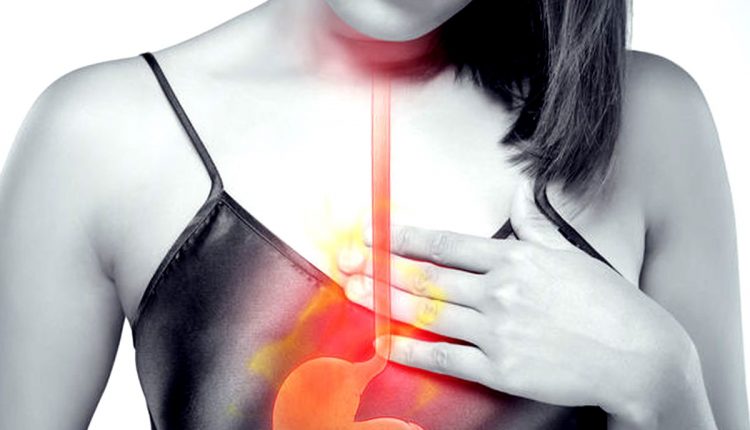
Gastritis: what it is, what the symptoms are and what to do
Gastritis consists of inflammation of the mucous membrane that lines the inside of the stomach. This inflammation (or inflammation) can vary in extent from simple redness (hyperemia) to small abrasions (erosions)
The causes of gastritis are certain aggressive factors on the mucosa such as drugs (especially anti-inflammatory drugs) and contamination by Helicobacter Pylori, a bacterium that characteristically localises in the stomach.
What are the symptoms of gastritis
Gastritis is often asymptomatic; when present, the symptoms are: difficult digestion (dyspepsia) with a sense of postprandial stuffiness, nausea, burning and/or pain in the central part of the abdomen, either at the top (epigastrium) or in the middle (mesogastrium).
More rarely vomiting is present, often dietary, but sometimes also fasting.
Sometimes the pain is reduced or disappears after eating.
Tests to be done in case of gastritis
When symptoms suggestive of gastritis are present, in young subjects, the first thing to do is to search for Helicobacter Pylori, which can be performed on stools, or with the Breath Test, in which the patient, after drinking a particular solution containing radioactive urea, simply has to blow into a test tube.
The air thus emitted will then be analysed for the presence of the micro-organism.
Another test for demonstrating Helicobacter Pylori contamination is the detection of anti-HP antibodies, which is performed on blood, but can also be carried out on saliva or faeces.
If symptoms occur after the age of 45, however, an oesophago-gastro-duodenoscopy or EGDoscopy should be performed.
This is because, in such patients, the symptoms could be an expression of other, more serious pathologies (gastric cancer).
Moreover, with endoscopy, by taking samples of gastric mucosa, it is also possible to demonstrate the presence of Helicobacter Pylori in the stomach.
Complications of gastritis
Acute gastritis heals upon elimination of the causative agent (drugs or stress).
Chronic forms remain mostly stable over the years with periods of symptomatic flare-ups and periods of well-being.
Gastritis may, rarely, be complicated by the appearance of haemorrhage that may be evidenced by melena or haematemesis or the development of neoplasms i.e. gastric carcinoma and lymphoma.
Therapies for gastritis
Very important in the treatment of gastritis is the reduction of gastric acidity.
This can be achieved with anti-H2 drugs (such as ranitidine) or proton pump inhibitors (such as omeprazole), or with antacids (aluminium and magnesium hydroxide), which have the function of temporarily buffering the acidity.
Mucosal protectors (such as sucralfate) and prostaglandins (such as misoprostol) are also useful.
Antibiotics (such as amoxicillin, clarithromycin), in combination with proton pump inhibitors, are used to eliminate Helicobacter Pylori infection.
The simplest advice to be given to patients with gastritis is:
- it is not necessary to follow a particular diet (the so-called ‘blank diet’ once frequently recommended is useless);
- it is definitely harmful to smoke cigarettes
- it is useful to reduce the consumption of alcohol, coffee and tea;
- the use of gastrolesive drugs (such as anti-inflammatory drugs, cortisone, etc.) should be avoided at all costs;
- appropriate therapy should be scrupulously followed.
Read Also:
Emergency Live Even More…Live: Download The New Free App Of Your Newspaper For IOS And Android
Gastritis: Symptoms And Nutrition To Combat It
Overview Of Gastritis: What It Is, How To Treat It
Giant Hypertrophic Gastritis (Ménétrier Disease): Causes, Symptoms, Diagnosis, Treatment
What Is Gastro-Oesophageal Reflux And How To Treat It
Vomiting Blood: Haemorrhaging Of The Upper Gastrointestinal Tract
Pinworms Infestation: How To Treat A Paediatric Patient With Enterobiasis (Oxyuriasis)
Intestinal Infections: How Is Dientamoeba Fragilis Infection Contracted?
Gastrointestinal Disorders Caused By NSAIDs: What They Are, What Problems They Cause
Intestinal Virus: What To Eat And How To Treat Gastroenteritis
Gastrointestinal Bleeding: What It Is, How It Manifests Itself, How To Intervene
Gastroenterology: What Is The Difference Between Gastritis And GERD?



